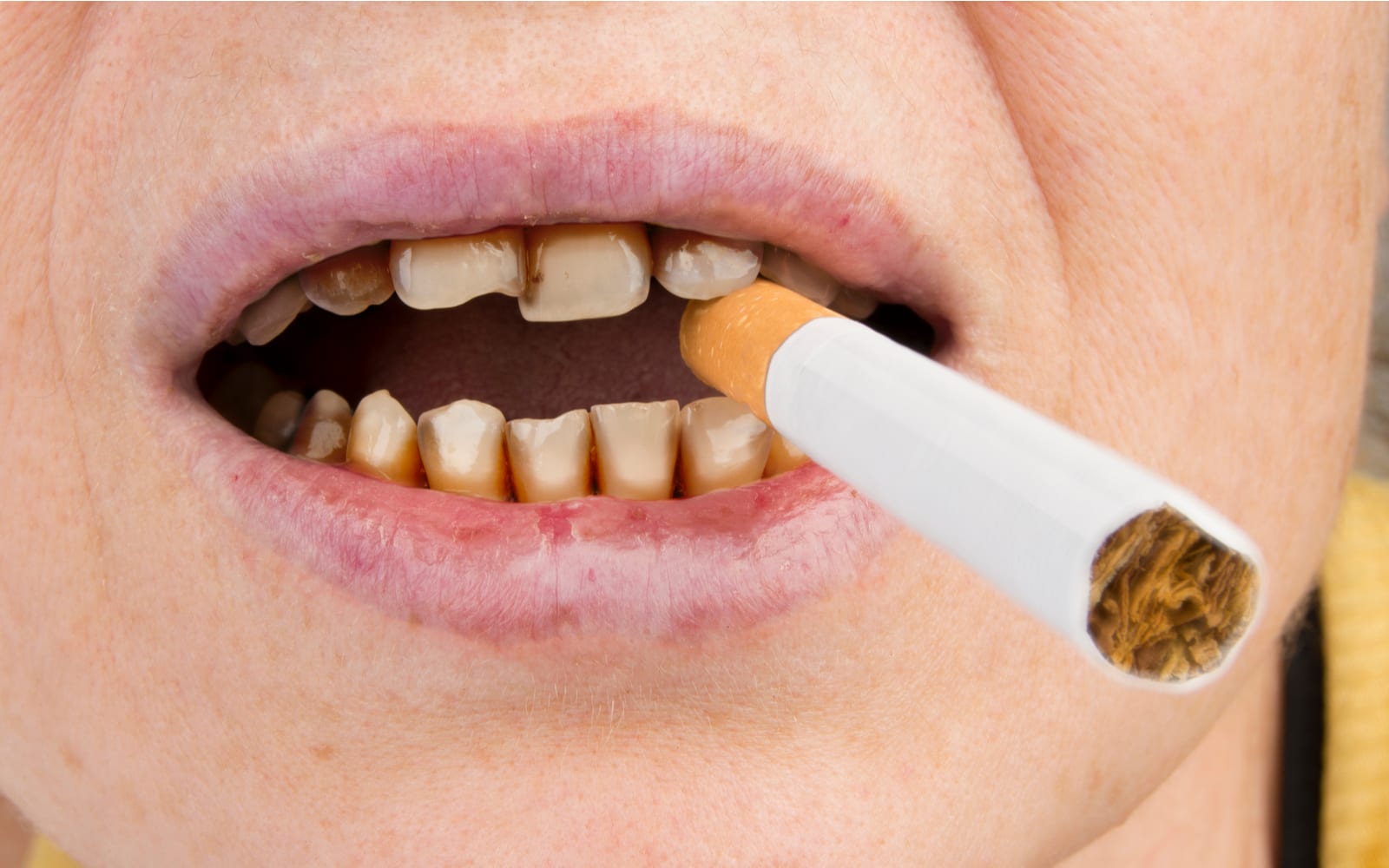Medical science takes a very firm stance when it comes to tobacco and its role in destroying our health, and dentistry is stepping on board with its own pack of consequences. While lung cancer and COPD (Chronic Obstructive Pulmonary Disease) are serious on their own, it turns out that your oral health is in danger as well. From faster dental decay to impacting your treatment options, we’ll cover new ways that tobacco use, smoked or chewed, can lead to serious trouble at the dentist’s office.
Those who use smokeless tobacco experience quadruple the cavity occurrence of non-tobacco users
Breathing Difficulties Are Just The Beginning For Tobacco Users
The respiratory consequences of inhaling tobacco smoke are well known, but the risks this habit presents don’t end with the lungs. The use of tobacco in any amount has been shown to aggravate preexisting oral health concerns and be the cause of others. While smokeless tobacco is often used to avoid the respiratory risks involved with smoking, its effects on your oral health are even worse than that of smoked tobacco. Below are a few of the oral health risks associated with non-smoked and smoked tobacco:
- Teeth Wear Faster – All forms of tobacco speed the rate at which your teeth wear down with smokeless tobacco. It’s the abrasive particles of the material itself that causes the damage. The particles inhaled with smoked are remarkably abrasive on their own. Both can cause complications with your teeth and gums.
- Dental Treatments Are Sometimes Limited – Blood flow to oral structures has been shown to be impaired by the use of tobacco products, creating an environment for bacteria growth. Your tongue, cheeks, and gums can become inflamed from the tobacco as well. This can lead to certain dental treatments being unable to be performed, including placing implants and bridges.
- Difficulty Treating Gum Disease – Treatment of periodontal disease can be a problem in tobacco users thanks to the immune system being suppressed. Gingivitis and other oral infections become harder to prevent and more difficult to eliminate once in place. Blood vessel regrowth is also impacted, extending healing times.
- Additional Risk of Cancer – Cancer of the voice box, bladder, esophagus, and colorectal structures are higher in tobacco users, both smoked and smokeless alike.
The tobacco habit comes with a group of risks that just seem to get larger as studies and research continue. Ending your tobacco use will help reduce your risk of these symptoms, and eventually, your oral health will recover from the impact of smoking in most cases. More severe consequences of smoking will be unable to heal without expensive treatments, so stopping as soon as possible is key.
After nine years, your risk of consequences related to tobacco use drops to normal
Get Assistance With Quitting
The repercussions of smoking on your oral health have driven many patients to attempt to quit smoking, and your dentist will have resources to help you do so. While they may not offer the program at their clinic, they’ll be able to connect you with smoking cessation programs to help you overcome your habit. Tobacco use of any kind has serious implications for your oral health; call for help quitting today!



